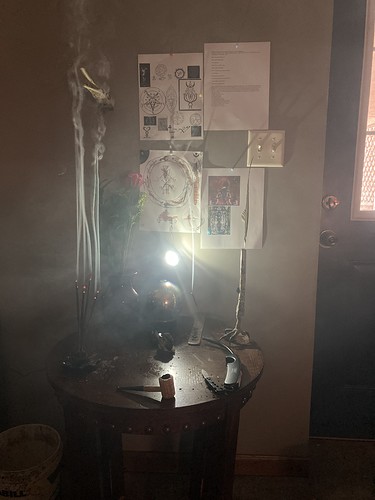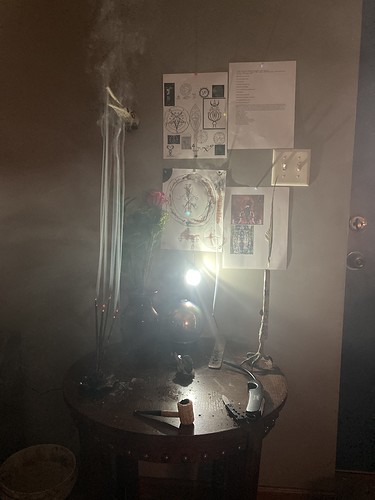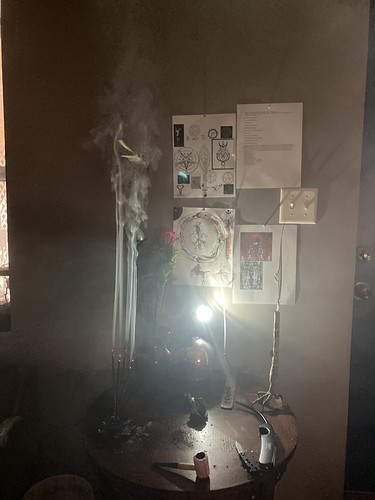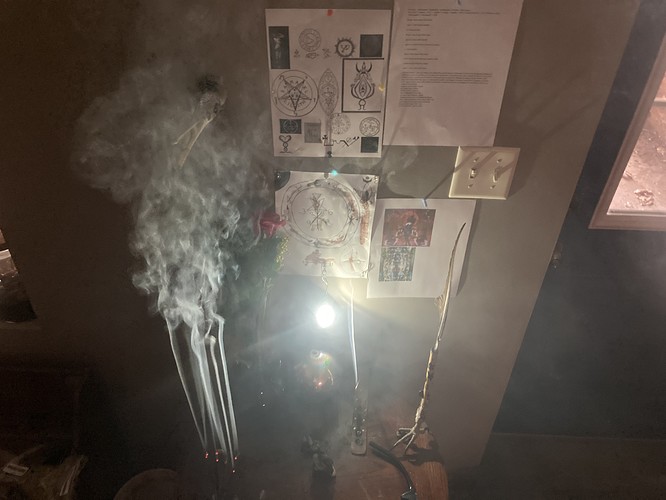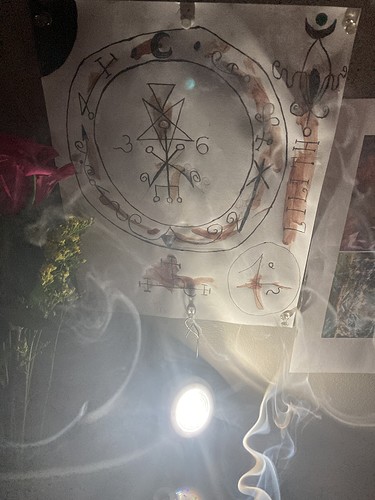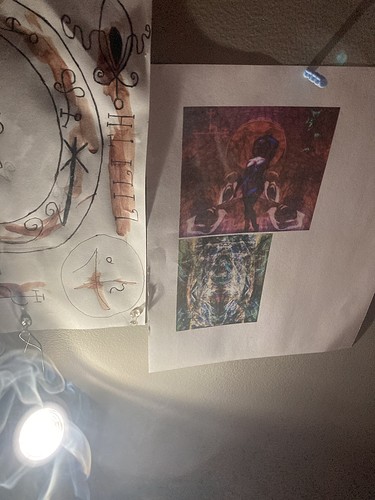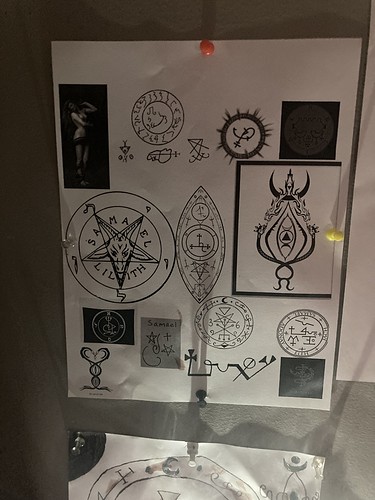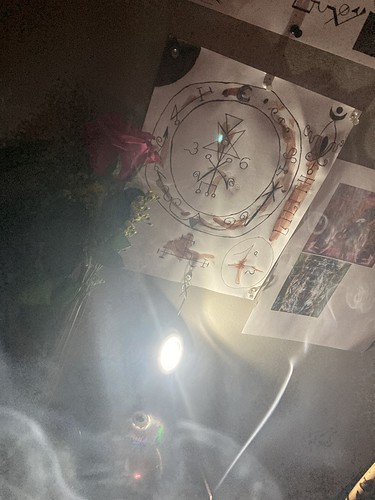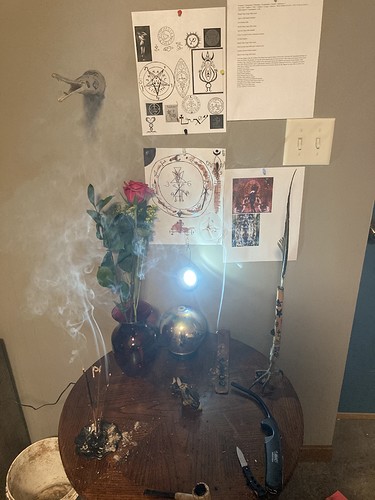ya i think ill keep all my soul for now instead doing that
I’ve done it before, fragmentation is kind of a bad word for it since you don’t lose anything and it’s more just creating a smaller “copy” of your own without any of your traits.
I mean, going blindly into something is stupid.
For instance, without knowing and doing proper research before summoning, well anything is asking for your ass on a plate.
Knowing what they like in terms of say incense and offerings help with the connection and the working.
It’s like a random, for instance evoking Asmodeus with chamomile incense and offering of an apple…
Not one of which is suited to the working.
Thus proper study and preparation work helps the magician to make the working be successful.
Anyways that’s just my rambling.
Different strokes for different folks I presume.
interesting you should take me through and explain the process in the dms sometime
Well whenever you decide to do it or not either way my dms are open.
yes thats true and it can be great to experiment with the offerings a little you never know might find something better to use but mostly just stick to the basics later im getting roses and pomegranates and blood for lilith
maybe wine aswell
thank you friend
I have to find out where I read that
For me, I knew that lilth was more dominating to adam
I will re read the hebrew bible
NONE of this is true, and the tale beloved by feminists may actually have started out as an ancient racist meme:
The story implies that when Eve was afterwards fashioned out of Adam’s rib (symbolic of her subjection to him), this was to serve as an antidote to Lilith’s short-lived attempt at egalitarianism. Here, declare the feminists matronizingly, we have a clear statement of the Rabbinic Attitude Towards Women!
There is only one slight problem with this theory: The story of Lilith is not actually found in any authentic Rabbinic tradition. Although it is repeatedly cited as a “Rabbinic legend” or a “midrash,” it is not recorded in any ancient Jewish text!
The tale of Lilith originates in a medieval work called “the Alphabet of Ben-Sira,” a work whose relationship to the conventional streams of Judaism is, to say the least, problematic.
The unknown author of this work has filled it with many elements that seem designed to upset the sensibilities of traditional Jews. …The book is consistently sounding the praises of hypocritical and insincere behaviour.
So shocking and abhorrent are some of the contents of “the Alphabet of Ben-Sira” that modern scholars have been at a loss to explain why anyone would have written such a book. … I personally would not rule out the possibility that it was actually an anti-Jewish satire…
Source: https://people.ucalgary.ca/~elsegal/Shokel/950206_Lilith.html
Now, I somewhat apologise for the fact that is innately political, but then as the post I have quoted above shows, her very existence in the modern mind is innately political, so it would be like trying to describe a fish without reference to water.
What I WILL say is that I found her to be an ancient goddess of that land, nothing to do with fantasies of rebellion, just long turned into the name of a demon by a different ethnic group.
She’s actually pretty nice. ![]()
Honestly
History is just fucking complicated
You cannot believe anyone of the people who wrote this religious texts
One more bit from that source:
Eventually the tale of Lilith was included in a popular English-language compendium of Rabbinic legend, and some uncritical readers–unable or unwilling to check after the editor’s sources–cited it as a representative Rabbinic statement on the topic. As tends to happen in such instances, subsequent authors kept copying from one another until the original error turned into an unchallenged historical fact.
Bibliography:
-
J. Dan, The Hebrew Story in the Middle Ages, Jerusalem, 1974.
-
J. D. Eisenstadt, ed., Ozar Midrashim, Israel, n.d.
Thanks for your clarification
i have to read lot of stuff…
i read on wiki that theres a passage of her in the Zohar
honestly ive worked with her but never asked her of her origins, based on how ive gotten to know her she feels like a demon, maybe a demonick goddess
The Zohar first appeared in Spain, then the Kingdom of Leon, in the 13th century. It was published by a Jewish writer named Moses de León (c. 1240–1305).
Source: Zohar - Wikipedia (my emphasis)
would you say her origins are Sumerian?
No, some of the people who have now become the Palestinians, and maybe other tribes who have been lost to history, I don’t know much about their ancient history but that’s what she conveyed to me.
ah cool
